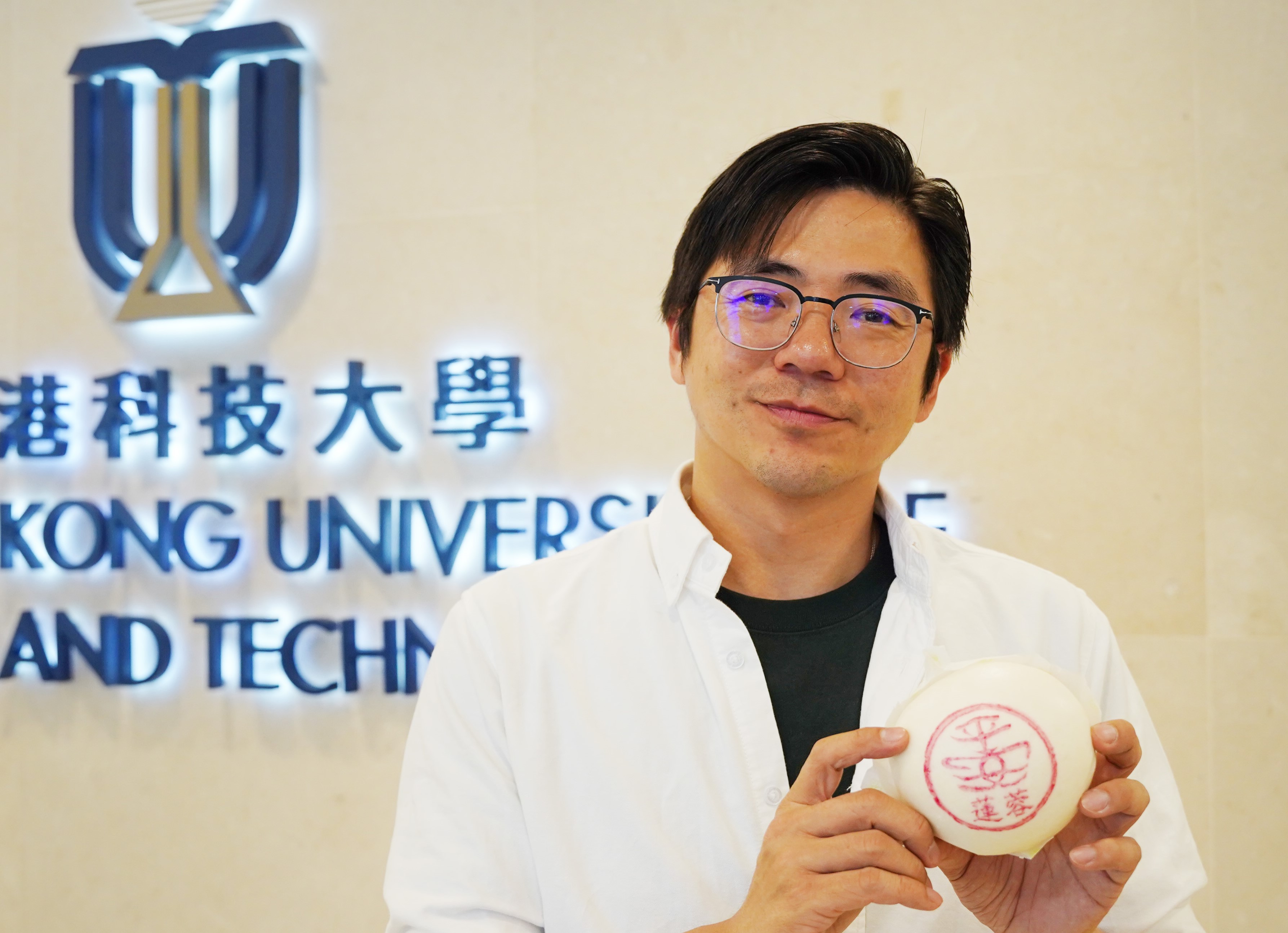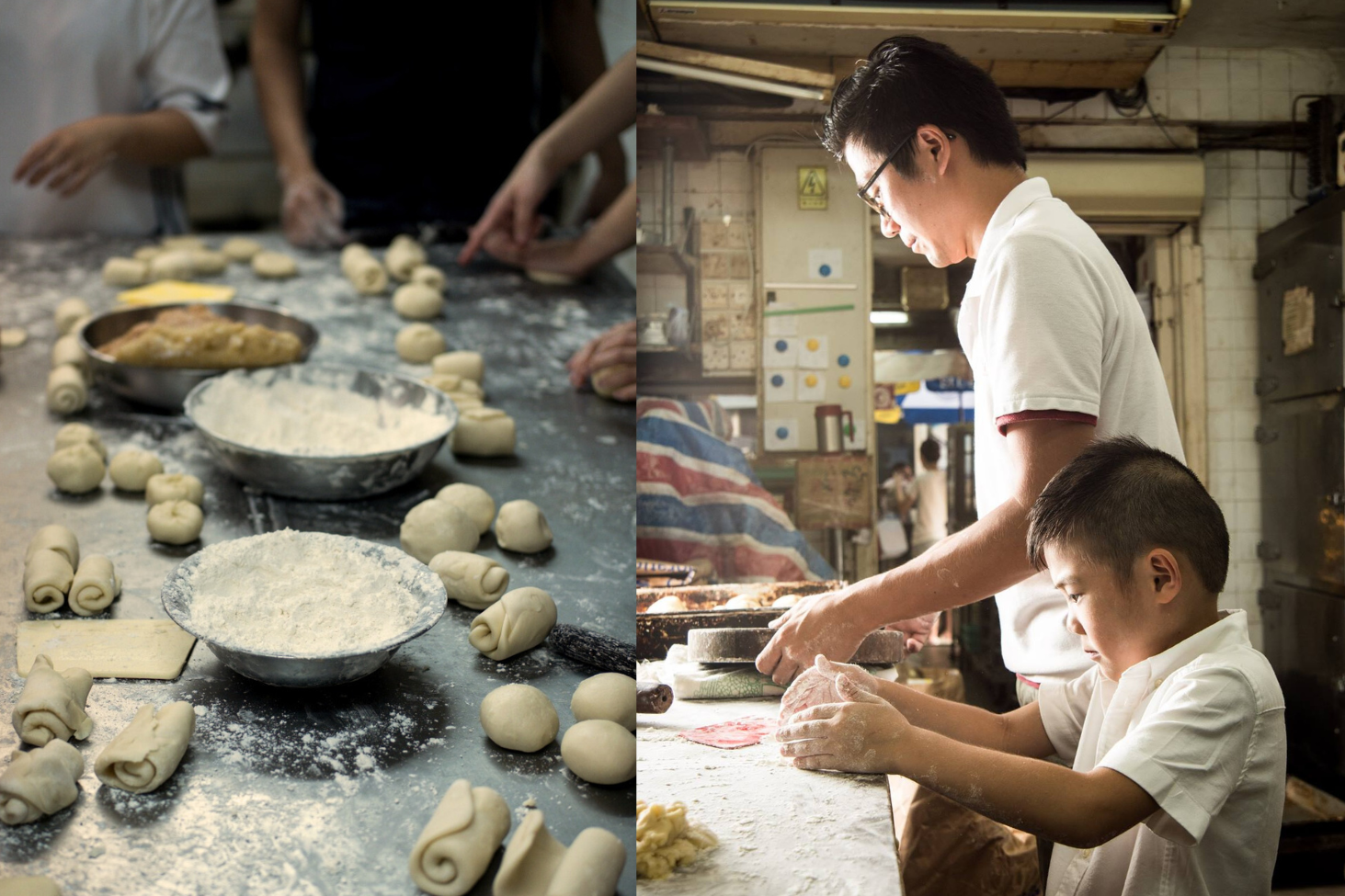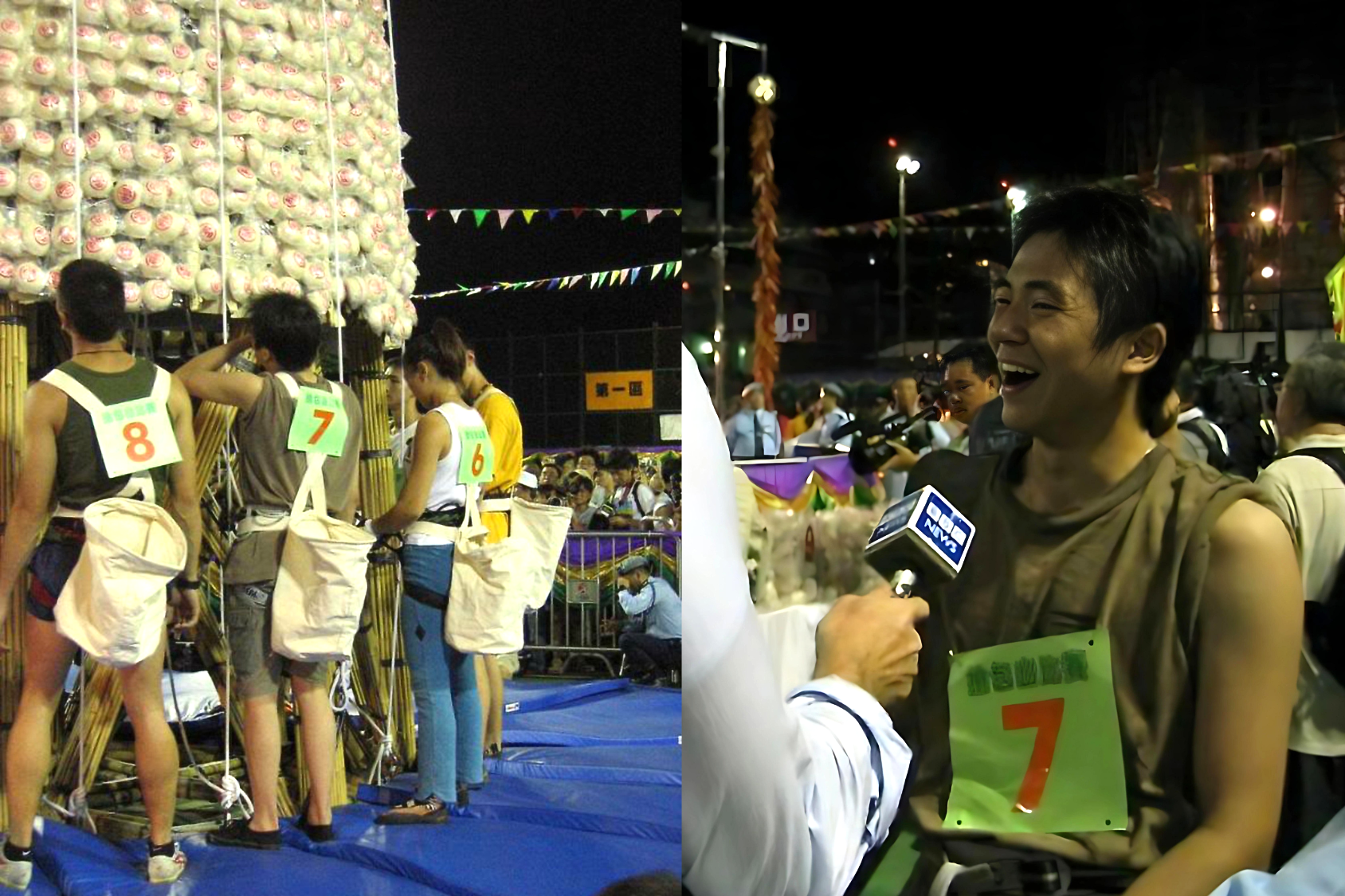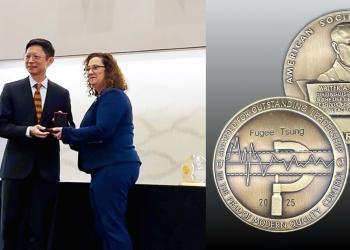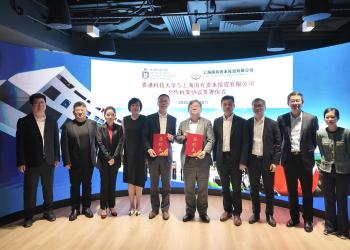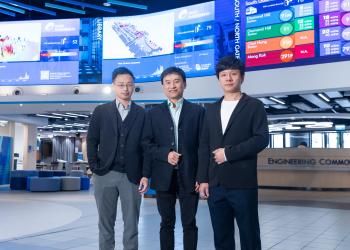The Baker’s Winning Recipe for Preserving Intangible Cultural Heritage
If you have celebrated Cheung Chau Bun Festival, chances are you have had the pleasure of savoring one of Kwok Kam Kee’s lucky buns. This year, its famed cake shop - a quaint bakery with more than 50 years of history – sold a whopping 60,000 fortunate buns in just one week. Behind this success story stands Martin KWOK, alumnus of the Hong Kong University of Science and Technology (HKUST), and the second-generation chief of Kwok Kam Kee who took over the reins seven years ago and turned its fortune around. Yet, Martin’s aspiration casts a net that extends beyond baking and into the realm of intangible cultural heritage preservation.
Opening up to new perspectives
Recognizing the Cheung Chau Bun Festival’s cultural value, HKUST’s School of Science invited Martin to return to his alma mater back in March and create a two-meter-high miniature “Bun Hill” for the “Intercultural Fair”. This event attracted over 1,000 students and staff from around the world, providing them with a “bite” of cultural heritage represented by the lucky buns. The Festival has been recognized as part of China’s national list of intangible cultural heritage since 2011, with its iconic fortunate buns adorned with red Chinese characters “Ping On” symbolizing peace and safety for the island.

Reflecting on his life at HKUST, Martin shared, “While others studied for three years, I studied for four. Looking back, I can see how much I have gained despite graduating one year later.” He enrolled at HKUST in 2000, majoring in mechanical engineering and eventually graduating with a Bachelor of Engineering in Electronic Engineering (Information and Communication Engineering) and Computer Engineering in 2004.
Fast forward two decades, the potentially life-changing power of cross-cultural experiences HKUST offers its students still strikes Martin as what sets the University apart. This visionary approach broadened his horizons and continues shaping his life today. During his third year, he seized an opportunity provided by HKUST to participate in an exchange program at Tsinghua University in Beijing, immersing himself in the cultural ambience and visiting heritage sites, including the Great Wall and the Palace Museum, leading him to extend his studies for one year.
Along a similar vein, Martin completed his second internship at a telecom company in Germany before graduation. As a tester, he utilized a liquid medium to examine radiation levels in electronic products, ensuring compliance with European safety standards. This experience equipped Martin with effective work practices for the journey that lies ahead. He shared, “Working in an unfamiliar country significantly broadened my horizons, encouraging me to think more comprehensively and globally rather than being confined to regional boundaries.”
Embracing his roots
After graduating from HKUST, Martin embarked on a different career path. He worked as an IT professional at a renowned bank for over two years and spent more than a decade in the finance industry, eventually becoming an executive director at a financial institution. However, in 2017, while sitting in his office overlooking Hong Kong’s bustling harbor, Martin’s thoughts pivoted to the fate of his family’s bakery as his father’s retirement loomed on the horizon.
“Growing up, we often miss the things we leave behind,” Martin waxed lyrically. Memories of his father and other bakers toiling late into the night awoke a deep longing in him. He said, “I couldn’t bear the thought of losing the Kwok Kam Kee brand – I want to carry the legacy forward and pass it on.” Despite his father’s initial objections, Martin persevered and took over the bakery, armed with a blueprint, or recipe if you may, to bring Kwok Kam Kee beyond the petite island of Cheung Chau.
One such notion from Martin’s blueprint was fusing tradition with modern charm. “Tradition can sustain with contemporary elements. The innovative ideas I learned from HKUST have been invaluable,” he emphasized, crediting the Sport Climbing club he was a member of in his university days as where he learnt to draft proposals and galvanize sponsorship. He collaborated with Sanrio using their beloved characters such as Hello Kitty and Gudetama to create eye-popping designs for the lucky buns. The response was overwhelming, propelling the brand from Cheung Chau’s shores to supermarkets in Hong Kong and Macao, with plans to branch into Southeast Asia and the United Kingdom soon.
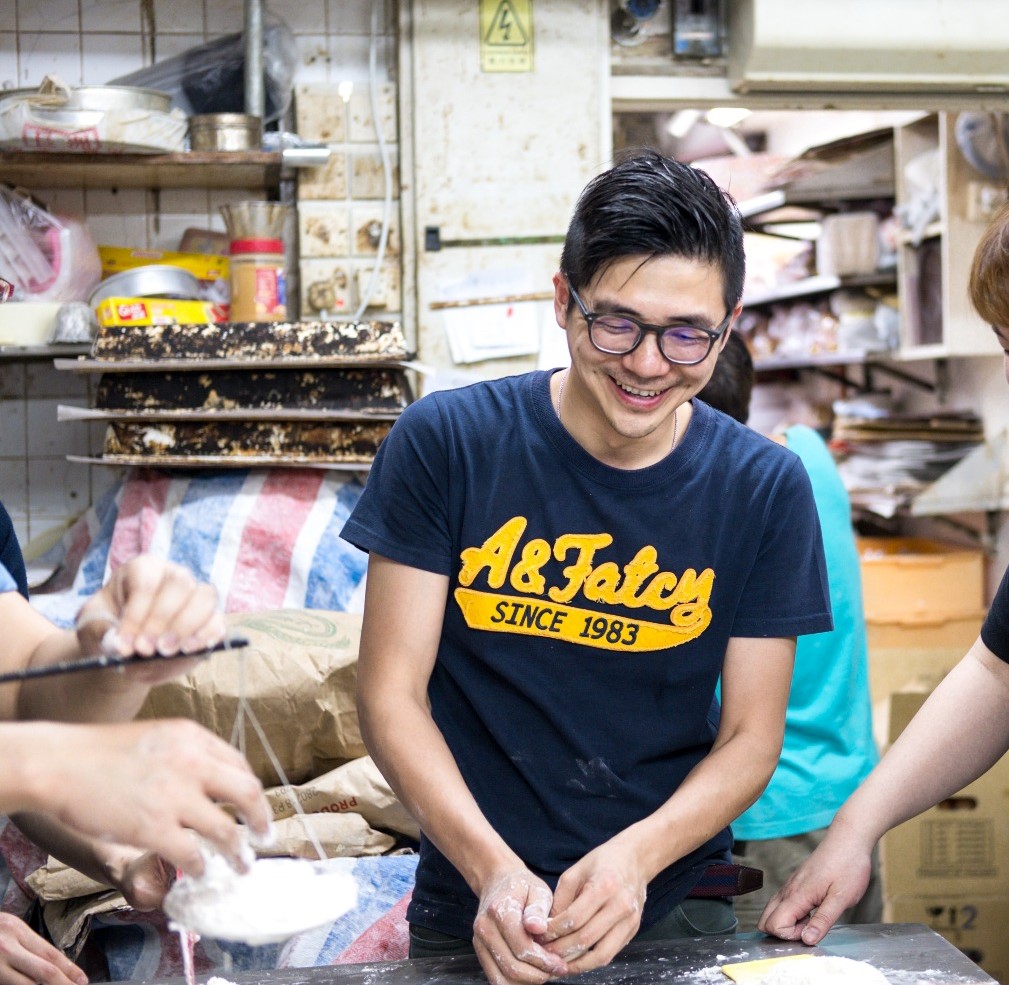
Inspiring future generations
Martin’s ambition to preserve intangible cultural heritage doesn’t stop at his bakery. Joining forces with travel agencies and the reopened Cheung Chau Cinema, he initiated workshops to teach primary and secondary students the endangered art of making lucky buns, while sharing the rich culture of Cheung Chau. These engaging workshops have proved immensely popular, drawing over 30,000 participants from both the local and international communities since last September.
Culture is a living entity birthed from impactful experiences for Martin. “It is not just about seeing a certain product that inspires us – it is a process of immersion,” Martin said. Driven by this passion, Martin founded a cultural education company. In a nod to his exchange program encounter in Beijing, Martin envisions organizing a cultural exchange program between Hong Kong and Yangzhou, as well as other Southeast Asian cities, granting younger generations the opportunity to appreciate, embrace, and even preserve their unique cultural heritage.
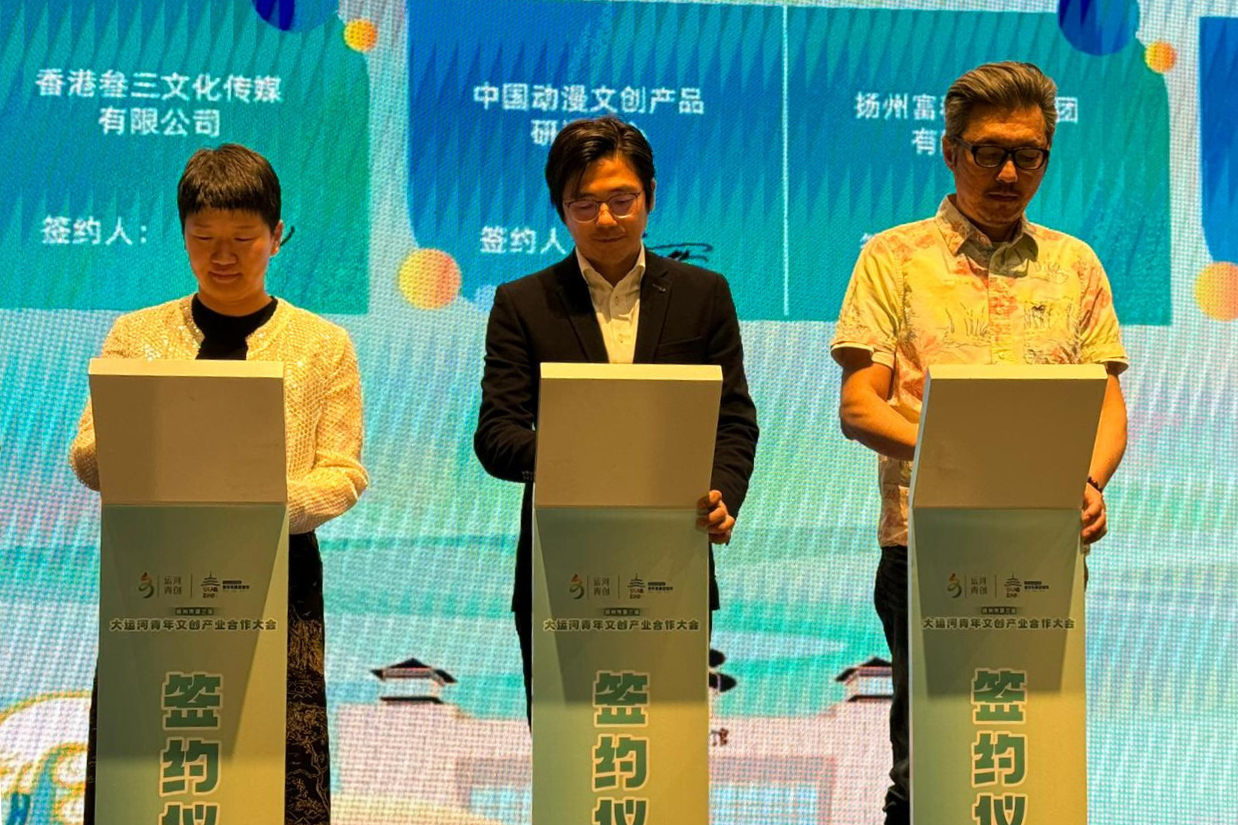
“I am someone who explores different paths,” Martin stated with pride. From his first taste of success as an executive director in finance, to being the torchbearer of Kwok Kam Kee, Martin cherishes every single lesson he gained from the University – including the can-do spirit and resilience that govern his missions to this day.
(Photo Credit: Martin KWOK)







